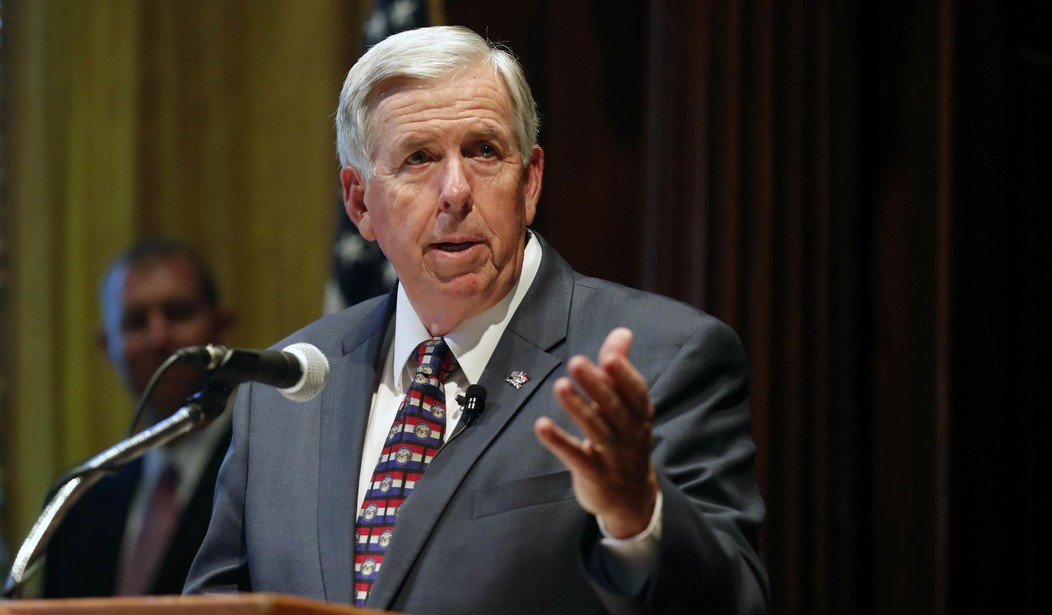Just days after Alabama passed the country’s most restrictive abortion law, Missouri lawmakers are poised to approve a bill that would ban abortion after eight weeks.
The state’s Senate passed House Bill 126, known as the “Missouri Stands for the Unborn Act," Thursday, and Republican Gov. Mike Parson is expected to sign it into law.
"Thanks for the leaders in the House and Senate, we have the opportunity to be one of the strongest pro-life states in the country," Parson said earlier this week.
Even without Parson’s signature, however, the bill will become law on Aug. 28 if the state House passes the legislation, state law dictates.
Similar laws have been proposed in more than a dozen other states as Republican-controlled legislatures push to restrict the rights of women to terminate their pregnancies.
Renewed efforts to roll back Roe v. Wade, the landmark U.S. Supreme Court decision that legalized abortion nationwide in 1973 have been emboldened by two judicial appointments by President Donald Trump that have given conservatives a solid majority on the Supreme Court.
At a time when U.S. rates of abortion have sharply declined, the issue has also reignited clashes between religious conservatives and others who say pro-life protections should extend to the unborn, and those, including civil libertarians, who see such measures as an infringement on women’s rights. (Reuters)
Recommended
Missouri Stands for the Unborn https://t.co/HWMxd0pkje
— Governor Mike Parson (@GovParsonMO) May 15, 2019
The only exemption in the law is for a medical emergency. If doctors violate the eight-week cutoff, doctors could face between five and 15 years in prison, but women who seek abortions would not be prosecuted.

























Join the conversation as a VIP Member